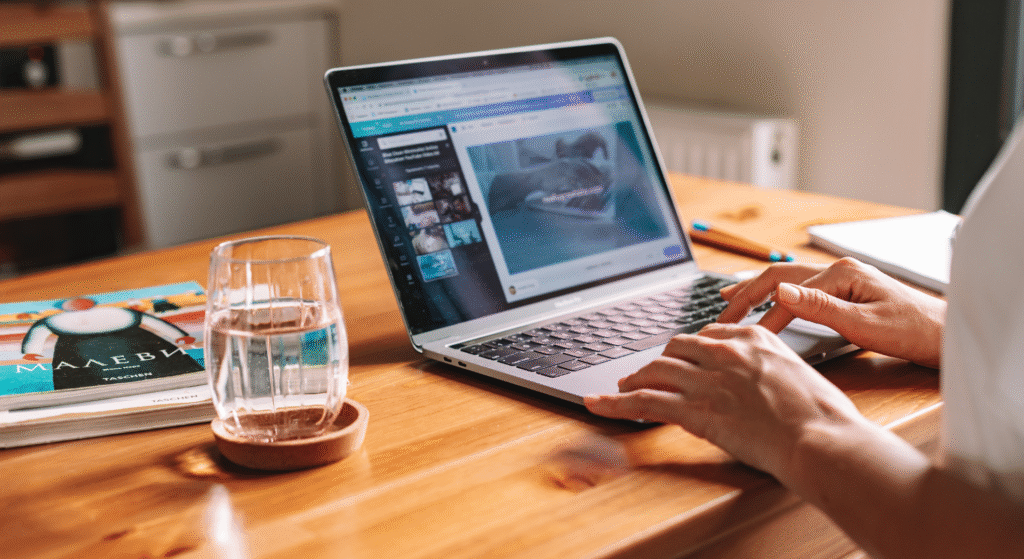Being productive at work is not always about working longer hours or rushing through tasks. It’s about using your time wisely, managing your energy, and staying focused on what truly matters. When you are productive, you finish tasks faster, feel more satisfied with your progress, and still have time and energy left at the end of the day.
Many people struggle to stay productive because of distractions, unclear goals, or low motivation. You might sit at your desk for hours and still feel like nothing important got done. Maybe you open your laptop in the morning with good intentions but end up jumping between emails, messages, and random tasks—without finishing anything meaningful. Over time, this leads to stress, frustration, and burnout.
The good news is you can change how you work without pushing yourself too hard. It starts with small, simple steps that help you stay focused, organized, and energized.
12 Effective Steps to Boost Productivity at Work
1. Start Your Day With a Clear Plan
Starting your day without a plan makes it easy to get distracted. You may jump between tasks and lose focus on what matters most. Instead, take a few minutes each morning to write down your top three goals for the day. A simple list helps your brain stay on track and prevents wasted time.
Read also: How to Do a Personal Development Plan
2. Break Big Tasks Into Smaller Steps
Large or unclear tasks can feel overwhelming. Breaking them into smaller, clear steps makes them easier to handle. For example, instead of writing “finish report,” list smaller steps like “gather notes,” “write outline,” and “edit draft.” Each completed step gives you momentum and helps you move forward.
3. Stop Multitasking
Multitasking feels productive, but research shows it slows you down and weakens your focus. Constantly switching between tasks makes your brain work harder, leading to lower-quality results. Instead, focus on one task at a time. According to the American Psychological Association, multitasking can reduce productivity by up to 40%.
Read also: 9 Ways to Dream Big and Achieve Your Goals
4. Set Time Blocks for Focused Work
Time blocking helps you work smarter, not longer. Choose blocks of time—like 25 or 50 minutes—for focused work on one task. During that block, ignore messages and distractions. When the time is up, take a short break to rest your brain. This method, often called time-blocking or the Pomodoro Technique, helps prevent burnout and increases focus.
5. Limit Distractions in Your Workspace
A noisy or messy workspace makes it harder to focus. Try to keep your area quiet, clean, and organized. Put your phone out of reach, close extra browser tabs, and let others know when you need uninterrupted time. Even small changes—like facing away from busy areas or using noise-canceling headphones—can help.
6. Prioritize Important Tasks Over Urgent Ones
Not all tasks have the same value. Some feel urgent but don’t truly matter. Others are important for long-term success but don’t seem urgent. Learn to tell the difference. Focus first on the important tasks. This idea comes from the Eisenhower Matrix, a tool that helps you sort tasks by urgency and importance.
Read also: 15 Ways to Set Boundaries at Work
7. Use Short Breaks to Recharge
Your brain needs rest to work well. Long hours without breaks lead to mental fatigue and lower-quality work. Take short breaks every hour to stretch, walk, or breathe deeply. Even five minutes can refresh your mind and improve focus. Breaks also help protect your energy and prevent burnout.
8. Set Clear Boundaries With Your Time
Frequent interruptions make it hard to stay productive. Set boundaries with your time and let others know when you’re available. Use tools like calendar blocks or status messages to protect your focus hours. This helps others respect your time and helps you stay in control of your schedule.
9. Keep Your Work Tools and Files Organized
Wasting time searching for documents, links, or emails adds up. Organize your physical and digital tools so everything is easy to find. Use folders, labels, and bookmarks to stay tidy. If you work online often, tools like Trello or Notion can help you keep tasks and notes in one place.
10. Learn to Say No to Extra Work
Taking on too much can quickly lead to burnout. Many people say yes to avoid letting others down, but doing too much lowers the quality of your work. Be honest about your limits. It’s okay to say no—or to suggest doing it later when you have more time. Protecting your time helps you do better work.
11. Reflect on What Helps You Work Best
Everyone works differently. Some people focus best in the morning; others prefer evenings. Some need silence, others prefer background music. Notice what makes you feel productive and what throws you off track. Build your routine around your natural habits to boost your productivity.
12. End Your Day With a Quick Review
Before ending your workday, take five minutes to review what you accomplished. Note what went well and what still needs attention tomorrow. You can jot down quick notes, update your task list, or move things forward. Ending the day with clarity helps you rest better and start fresh the next day.
Final Thoughts
Being productive doesn’t mean doing more—it means doing what matters in a better way. These 12 steps are here to help you build a calm, focused, and steady work routine. You don’t have to be perfect or fast. You just need to move forward with small, purposeful habits.
The most successful people are not always the busiest—they’re the ones who protect their time, manage their energy, and focus on what truly matters. You can do the same. Start with one or two steps from this list and build your own rhythm over time.
Remember: your productivity isn’t just about how much you do—it’s also about how well you take care of yourself while doing it. When you create better habits, you create space for more peace, more progress, and more satisfaction in your life.
Save the pin for later



